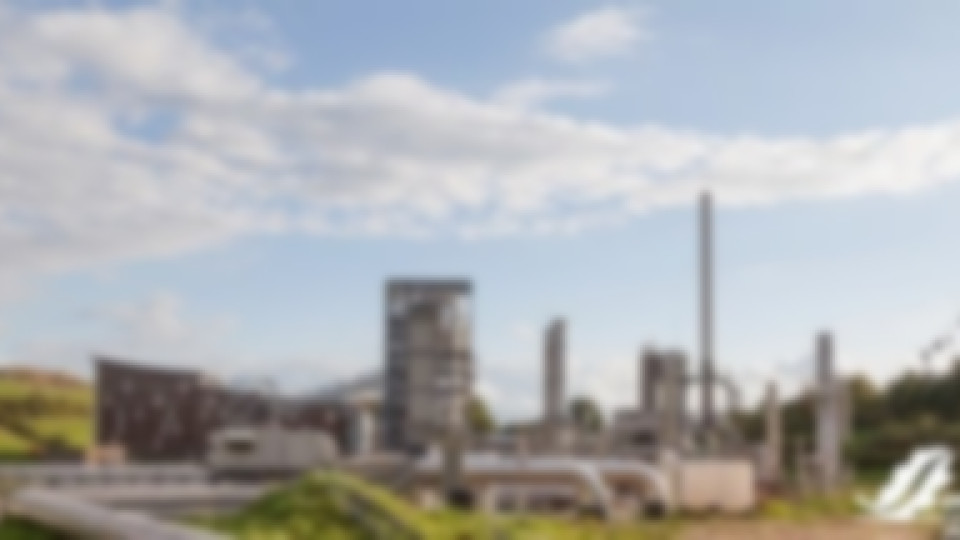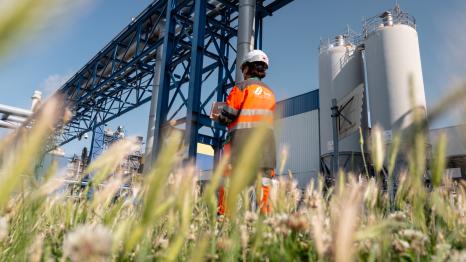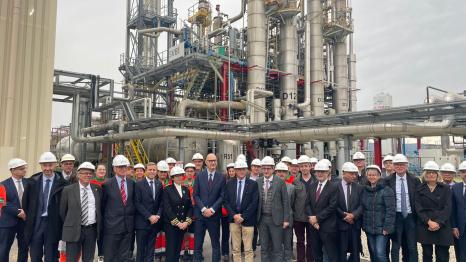Inauguration of the first SRF thermal power station developed in France
Thursday, October 5, in the presence of many political and economic actors, as well as employees of the Changé site, Joël Séché was proud to inaugurate the first French thermal power station dedicated to the enhancement of SRFs for the production and distribution of heat across a metropolitan area. Since this fall, the City of Laval possesses the very first network powered by fuels produced from previously non-recyclable waste. Nearly 6,400 homes will be supplied with heating. Based on an exemplary approach, this new technology is a response to the objectives set by the Energy Transition for Green Growth Act (ETGGA). It is also a new step in the development model advocated by Séché Environnement since its foundation: providing territories with the necessary tools and solutions to participate in a Circular Economy dynamic while optimizing the use of resources.
A historic first in France
Energy production from non-recyclable and combustible waste (SRFs: Solid Recovered Fuels) is one of the main dimensions of the ETGGA, which is inseparable from the national target to reduce landfill waste by 50% by 2025.
Although it is at the core of many projects, this new type of energy production remains difficult to implement due to a problematic balance between technical and economic issues.
The facility implemented today at the Séché Site of Changé (53) is the first French unit dedicated to the enhancement of SRFs, which will cover the energy needs of an urban heating network.
It was built and thought out by integrating the existing industrial ecology approaches. Hence, for many years, the Changé site has been supplying energy to the Coopérative Agricole Déshyouest for their fodder dehydration operations* mainly carried out in summer.
In order to optimize the use of SRFs, the SRF thermal power station will thus be used to cover the needs of Déshyouest in summer, and will produce hot water in winter for the urban heating network of Laval developed through a 10km interconnection (Changé / Laval).
In addition to the significant investment made, this historic first reflects Joël Séché 's continuous commitment for more than 40 years to engraving Séché Environnement’s name as a forerunner in environment protection, first through the preservation of biodiversity and today through the promotion of the Circular Economy and the efficient use of resources.
The mobilisation of public actors, alongside Séché Environnement, made this ambitious project a reality
The Laval elected representatives took advantage of this opportunity when they decided to no longer use fossil fuels for their urban heating network and development. Today, not only will the network no longer consume fossil fuels but it will also double in size!
The State, through DREAL and ADEME, encouraged this exemplary approach and played a central role thanks to the subsidies coming from the "waste" fund and the "heat" fund. The entire project (extension of the urban heating network in Laval, interconnection and energy hub of Changé) did receive public financial support in 2015 because of its exemplary and illustrative nature.
The Regional Council of Pays de la Loire and the Departmental Council of Mayenne have also enabled the project to come into being, by positioning themselves as new customers of the urban heating network (high schools, primary schools, low-cost housing, etc.).
SRFs: a new form of waste recovery
Produced from combustible and non-recyclable waste components (for example, waste sorting residues), SRFs are among the newest forms of waste recovery, which have been identified and promoted by the Energy Transition for Green Growth Act. Made of final waste, which are normally disposed of in landfills, SRFs represent alternative energy sources to fossil fuels.
Being produced locally, SRFs may respond to the nationwide objectives to promote a territory-based Circular Economy. Thanks to this new form of waste recovery, the residues of a territory become its energy sources.
Data on the present project:
Interconnection of Changé / Laval: 10 km, hot water network
Energy hub of Changé: power of 22 MW (ISDND biogas and SRF fluidized bed)
Laval CU network: 70,000 MWH / year in the long run
SRFs used: Solid Recovered Fuels produced from waste from economic activities, residues from the sorting of waste, and residues from the furniture industry
Interconnection and Energy hub: € 21.4 million in investments for SECHE ENVIRONNEMENT
ADEME subsidies (heat fund and waste fund): 6.1 M €
(*): plants dehydration is a means of preserving fodder which enables to maintain its nutritional value. This activity is complemented by the reintroduction of alfalfa, a multi-year crop that provides winter cover for the soil, and allows for the integration of a local vegetable protein resource.




